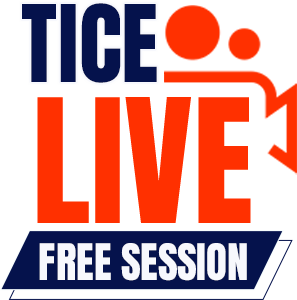
Posted On: February 05, 2025
MERN Stack Course: A Complete Overview
If you're aiming to build robust, scalable, and dynamic web applications, learning the MERN Stack could be a game-changer for your career. The MERN Stack has become one of the most sought-after technologies in the web development field, offering developers the tools to build sophisticated applications from scratch. This guide provides a complete overview of the MERN Stack, its components, and what to expect from a MERN Stack Course.
Introduction to the MERN Stack
The MERN Stack is a powerful combination of technologies designed to simplify and streamline the development of full-stack web applications. “MERN” stands for MongoDB, Express.js, React, and Node.js. Together, these tools allow developers to create seamless applications using JavaScript for both the client and the server sides.
It has gained immense popularity among developers and organizations due to its efficiency and ability to handle complex, dynamic applications with ease. By leveraging a unified development framework, developers can work seamlessly across the front-end and back-end, ensuring faster development cycles and better project scalability.
The flow of data and user experience is optimized in applications built with the MERN Stack, making it a preferred choice for modern developers seeking performance and reliability. This stack is particularly favored for its versatility, as it accommodates a wide range of application types, from small projects to large-scale enterprise solutions.
Components of the MERN Stack
MongoDB
MongoDB is a NoSQL database that stores data in a flexible, JSON-like format. It enables developers to handle large volumes of unstructured or semi-structured data while ensuring fast performance and scalability. Its document-oriented approach makes it a perfect fit for applications requiring agility and frequent updates, as it allows seamless integration of data across the application.
Express.js
Express.js is a server-side web application framework that simplifies handling HTTP requests and building robust APIs. Known for its minimal and unopinionated structure, Express.js provides a lightweight and flexible environment for managing backend operations. It allows developers to create middleware and route handling with ease, ensuring seamless communication between the database and the front end.
React
React is a widely popular JavaScript library for building user interfaces, particularly single-page applications. With its component-based architecture, React enables developers to create highly interactive and reusable UI components that enhance the user experience. Its virtual DOM mechanism ensures faster rendering, making applications responsive and efficient. React's flexibility allows for integration with other libraries and tools to extend functionality as required.
Node.js
Node.js is a runtime environment built on Chrome's V8 JavaScript engine, enabling the execution of JavaScript code on the server side. It is known for its non-blocking, event-driven architecture, making it ideal for handling multiple concurrent requests efficiently. Node.js facilitates the development of scalable and high-performing backend systems, incorporating a vast ecosystem of libraries and tools through npm.
Together, the MERN stack provides a comprehensive framework that allows developers to build modern web applications rapidly. Combining these technologies ensures a cohesive development experience by leveraging a single programming language—JavaScript—across the entire stack.
This consistency reduces complexity while improving productivity, making the MERN stack a preferred choice for full-stack developers worldwide.
How Does the MERN Stack Work?
The MERN Stack follows a single language—JavaScript—throughout the entire application architecture. Here's a high-level breakdown of how it operates:
Front-end Development with React.js
React.js is a powerful JavaScript library that focuses on building dynamic and responsive user interfaces. By employing reusable components, React ensures consistency in design and functionality while also streamlining the development process. Its virtual DOM enhances performance by minimizing real DOM updates, making it an excellent choice for high-performance applications.
Furthermore, React's ability to handle state management and integrate easily with other tools and libraries optimizes both user experience and developer productivity.
Back-end Development with Express.js & Node.js
This duo forms a robust foundation for server-side application logic. Express.js, a minimalist web framework for Node.js, simplifies tasks such as routing, middleware configuration, and user authentication. It is highly flexible and supports the creation of APIs that power dynamic web applications.
Meanwhile, Node.js serves as the runtime environment that executes JavaScript on the server side, enabling efficient and scalable handling of asynchronous operations. Together, these technologies create a reliable back-end system capable of managing complex workflows and real-time data exchanges.
Data Storage with MongoDB
MongoDB is a NoSQL database known for its ability to store and retrieve unstructured data with ease. It leverages a flexible document-based model, making it ideal for modern applications with evolving data schemas. With high scalability, support for horizontal scaling, and efficient querying features, MongoDB ensures that the application can handle large volumes of data without impacting performance. Its integration with other backend frameworks like Express.js further streamlines the data flow within the architecture.
These components are designed to work collectively, fostering the development of end-to-end applications that are not only scalable but also maintainable and user-centric. By orchestrating the front-end, back-end, and database layers seamlessly, this full-stack approach ensures robust and efficient solutions tailored to the complexities of modern web development.
Advantages of MERN
The MERN stack is a powerful framework for web development that combines advanced technologies to provide a seamless development experience. Below is a detailed explanation of the key advantages:
Full-Stack JavaScript
One of the most significant advantages of the MERN stack is that it allows developers to use JavaScript across the entire stack, from the front-end to the back-end and even for database operations. By relying on a single language, teams can eliminate the need to switch between different programming paradigms, greatly simplifying the learning curve and improving productivity. Additionally, this consistency fosters better collaboration among team members, as all aspects of the application share a common language.
Rapid Development
The modular architecture of the MERN stack enables developers to build applications quickly. React simplifies front-end development through reusable components, while Node.js and Express streamline back-end operations with lightweight frameworks and APIs. MongoDB enhances this efficiency by offering a flexible, schema-less database structure that allows for fast iteration and easy adaptation to changing requirements. This alignment of tools ensures shorter development cycles and faster time-to-market for applications.
Scalability
Scalability is a core strength of the MERN stack, making it suitable for applications of all sizes. MongoDB’s ability to handle large volumes of data and horizontal scaling ensures the database can grow with the application. Similarly, Node.js is built to handle concurrent connections efficiently, making it ideal for high-traffic applications. Whether you are building a simple startup MVP or a robust, enterprise-level platform, the MERN stack can scale dynamically to meet your needs without compromising performance.
Open Source
All components of the MERN stack—MongoDB, Express, React, and Node.js—are open-source technologies. This not only reduces development costs but also provides access to a thriving community of developers. The large ecosystem of contributors ensures continuous updates, enhancements, and extensive documentation. Developers can also benefit from a wide array of pre-built libraries, plugins, and tools to solve common challenges and accelerate the development process.
Strong Ecosystem
The MERN stack boasts a robust and interconnected ecosystem that further enhances developers' productivity. React’s vast library of community resources offers solutions for state management, UI design, and performance optimization. Express and Node.js collectively provide a framework for building APIs quickly and effectively, while MongoDB ensures seamless database integration. This ecosystem of tools and libraries makes the MERN stack a reliable choice for creating feature-rich, modern applications.
These advantages demonstrate why the MERN stack is a leading choice for developers worldwide. It combines speed, efficiency, and scalability, ensuring that projects are built on a strong foundation capable of handling future demands.
Limitations of MERN
- Steep Learning Curve - Beginners may find it overwhelming to master all four technologies.
- Backend Limitations - For complex back-end functionalities, MERN may fall slightly behind compared to other stacks like MEAN (Angular in place of React).
- Single-Language Dependency - While JavaScript is widely popular, its limitations as a single language across the stack can be a bottleneck for certain applications.
Alternatives to MERN Stack
While the MERN stack is powerful, there are other full-stack options available depending on your project needs. Some notable alternatives include:
- MEAN Stack (MongoDB, Express.js, Angular, Node.js)
- LAMP Stack (Linux, Apache, MySQL, PHP)
- Django + React/Angular
- Ruby on Rails
Why Learn the MERN Stack?
The MERN Stack offers unmatched versatility and has become a preferred choice for many startups, enterprises, and developers. If you're looking to advance as a full-stack developer, here's why MERN Stack is worth learning:
Benefits of Learning the MERN Stack
- High Demand – Companies are actively seeking skilled MERN Stack developers to handle modern web development needs.
- End-to-End Control – The MERN Stack allows developers to manage projects from front to back.
- Career Prospects – Freelance opportunities, remote jobs, and full-time positions are available across industries.
- Creativity – MERN encourages developers to create anything from simple apps to large-scale systems.
What to Expect in a MERN Stack Full Course
A MERN Stack Course is designed to help you become proficient in using all components of the stack. Here’s what you’ll typically learn:
- JavaScript Basics - Foundational knowledge of JavaScript to start your full-stack development.
- Building Interfaces with React - Become proficient in creating dynamic and responsive UIs.
- Creating APIs with Express.js - Learn how to build RESTful APIs.
- Database Management with MongoDB - Understand how to create, update, and query databases.
- Connecting Everything Using Node.js - Create a seamless application by integrating all layers of the stack.
- Real-World Projects - Gain hands-on experience by building full-stack applications.
Prerequisites for Enrolling in a MERN Stack Developer Course
Although basic programming knowledge is helpful, most courses require these prerequisites:
- Basic understanding of HTML, CSS, and JavaScript.
- Familiarity with database concepts (optional but recommended).
Key Factors to Consider Before Enrolling in a MERN Stack Course
When choosing the right course or training institute, consider the following:
- Practical Focus - Ensure the course includes hands-on projects.
- Experienced Trainers - Look for instructors with real-world development experience.
- Comprehensive Curriculum - The course should cover all essential components.
- Flexibility - Check whether the course format (online or in-person) suits your schedule.
Bonus Tips for Learning the MERN Stack
- Build projects ranging from simple websites to complex apps.
- Engage with MERN-focused developer communities for networking.
- Practice consistently to solidify concepts.
- Use popular platforms like GitHub to showcase your projects.
Career Opportunities for MERN Stack Developers
The career scope for MERN Stack developers is continuously growing. Here are some top job roles to explore:
- Web Developer
- Full-Stack Developer
- Back-End Engineer
- Front-End Developer
- Freelance MERN Stack Developer
You can work in industries like e-commerce, ed-tech, fintech, healthcare, and more. On average, MERN Developers earn competitive salaries, which makes it an ideal career choice.
FAQs
What does MERN Stack stand for?
MERN stands for MongoDB, Express.js, React, and Node.js, the four technologies used in this stack.
Can beginners learn the MERN Stack?
Yes, beginners can learn the MERN Stack, but having basic knowledge of web development is helpful.
Is MERN better than MEAN?
MERN is often considered more flexible due to React, while MEAN provides structure with Angular.
How long does it take to learn MERN Stack?
It typically takes 3-6 months of dedicated learning to become proficient, depending on your prior experience.
Take the Leap into MERN Stack Development With TICE
At TiceIndia, we are committed to empowering aspiring developers by providing the guidance and resources needed to master the MERN Stack. Whether you're a beginner or looking to enhance your skills, enrolling in a MERN full-stack developer course is a solid investment in your career.
Start your MERN Stack learning today at TICE, one of the best IT training institutes in Kolkata and watch your career soar. Good luck, and happy coding!
Tags
Latest Posts
-

A Step-by-Step Guide to Becoming a Social Media Manager in 2025
-

ROAS in Digital Marketing — What Is It and Why It Matters for Your Business?
-

Why Networking is Important for Students: Unlocking Opportunities for Internships and Jobs
-

What is Lead Generation? A Complete Guide for Marketers
-

Psychology of Colors in Branding – Choosing the Right Palette






